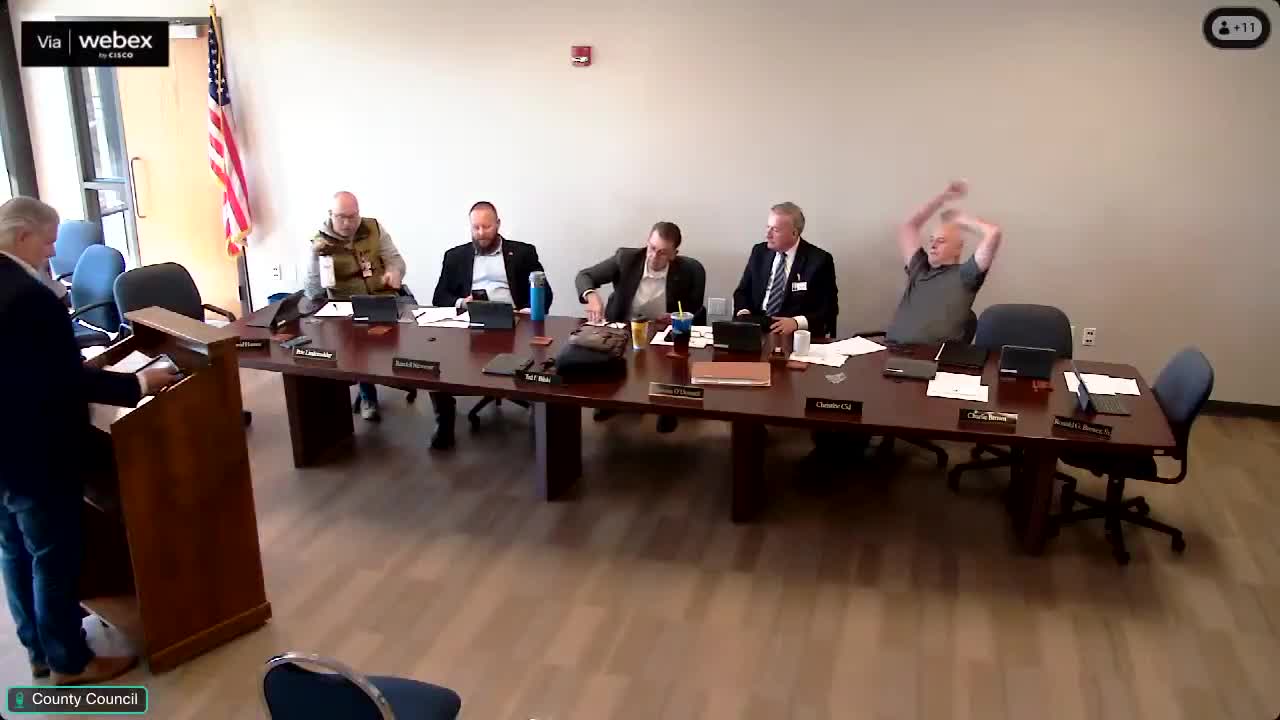Council reviews Project Tempo proposal, considers tax-abatement zone and labor protections
Get AI-powered insights, summaries, and transcripts
Subscribe
Summary
Council members spent a major portion of the study session discussing Project Tempo, a proposed roughly 1 million-square-foot industrial facility along the I‑65 corridor that developers estimate would represent about $125 million in investment and create about 150 jobs at an average wage the council cited as about $31 per hour.
Council members spent a major portion of the study session discussing Project Tempo, a proposed roughly 1 million-square-foot industrial facility along the I‑65 corridor that developers estimate would represent about $125 million in investment and create about 150 jobs at an average wage the council cited as about $31 per hour.
The discussion centered on whether to create an Economic Revitalization Area (ERA) for the site and include a package of incentives the developers requested: a 100% personal‑property tax abatement for the term under consideration and a seven‑year graduated abatement on real property. Council members also discussed requiring the developer to pay a one‑time $450,000 fee to the county if the abatement is approved. Council members asked staff to place a declaratory resolution for the ERA and related statement of benefits on the council agenda for Tuesday and to notify affected taxing districts as required before a public hearing and final vote.
Why it matters: The project would be one of the largest private investments in the county’s I‑65 corridor and, if approved, would significantly change the county’s tax base and job profile. Council members repeatedly tied their support for incentives to conditions intended to secure local construction and trades opportunities.
Council members and staff raised two policy issues repeatedly. First, several members urged contract language to protect opportunities for local, licensed tradespeople to participate in both the construction and the later installation of machinery and equipment inside the facility when the building is turned over to an operational owner. Second, several members said the project labor agreement (PLA) currently in place with Clayco covers construction under Clayco’s scope but does not automatically cover later work performed by different subcontractors or by an eventual tenant; they discussed adding language in the ERA statement of benefits or the development agreement to bind subsequent owners or equipment vendors to the PLA or equivalent requirements.
Council discussion also focused on enforcement: members said the statement of benefits and related agreements should include remedies (including possible abatement recapture) if the developer or a later owner fails to comply with the labor and other conditions that win the incentive. Staff and council members indicated they would work with County Attorney O’Donnell to draft language tying interior work and equipment installation to the PLA or to licensing and bonding requirements enforced through the county’s permitting process.
Representatives of the developer — identified in the meeting as Venture 1/Berkshire-related representatives — answered procedural questions about timing and site development permitting. County planning staff reminded the developer that, separate from the ERA/abatement process, a site development plan and plan‑commission review are required before building permits can be issued.
No final vote was taken at the study session. Council members directed staff to prepare the declaratory resolution and statement of benefits for the upcoming Tuesday meeting, to notify taxing districts, and to return with specific draft language that would (as discussed) require compliance with PLA or licensing conditions and specify remedies for violations. A public hearing and subsequent votes would follow the required notices.
Ending: Council members who spoke in favor said they support the project’s potential for permanent jobs and regional investment, but several said they want clear, enforceable contract language before final approval so local tradespeople have “a seat at the table” during equipment installation and other post‑construction work.
